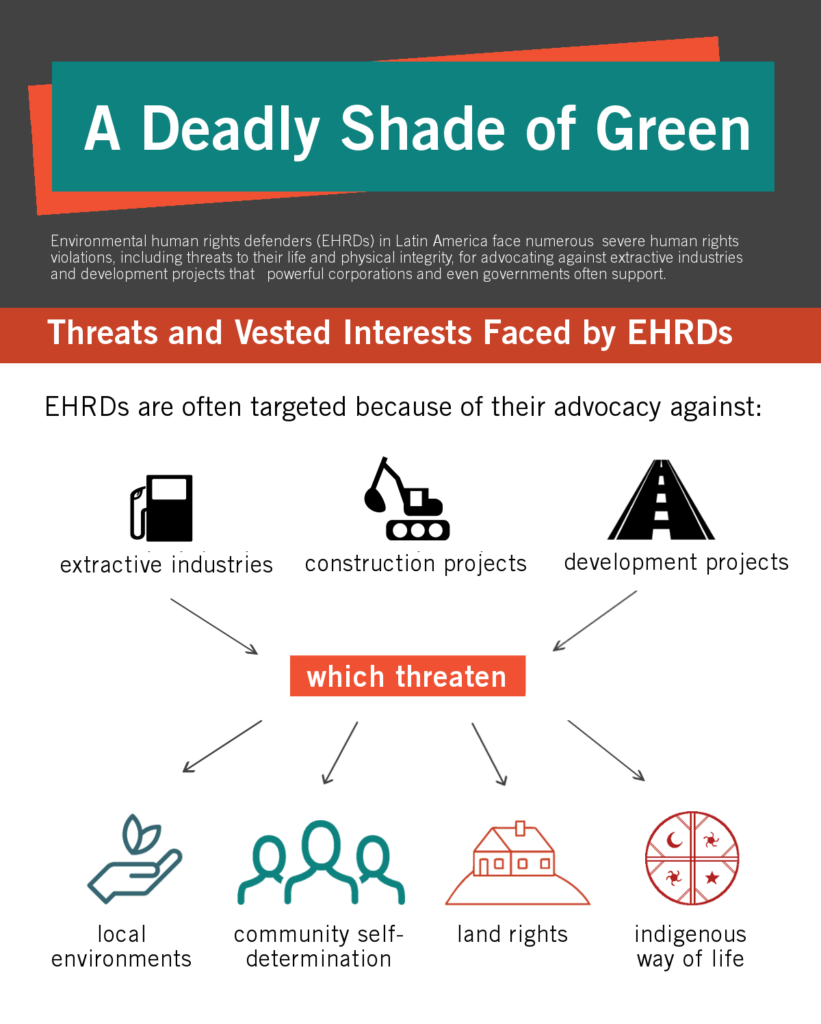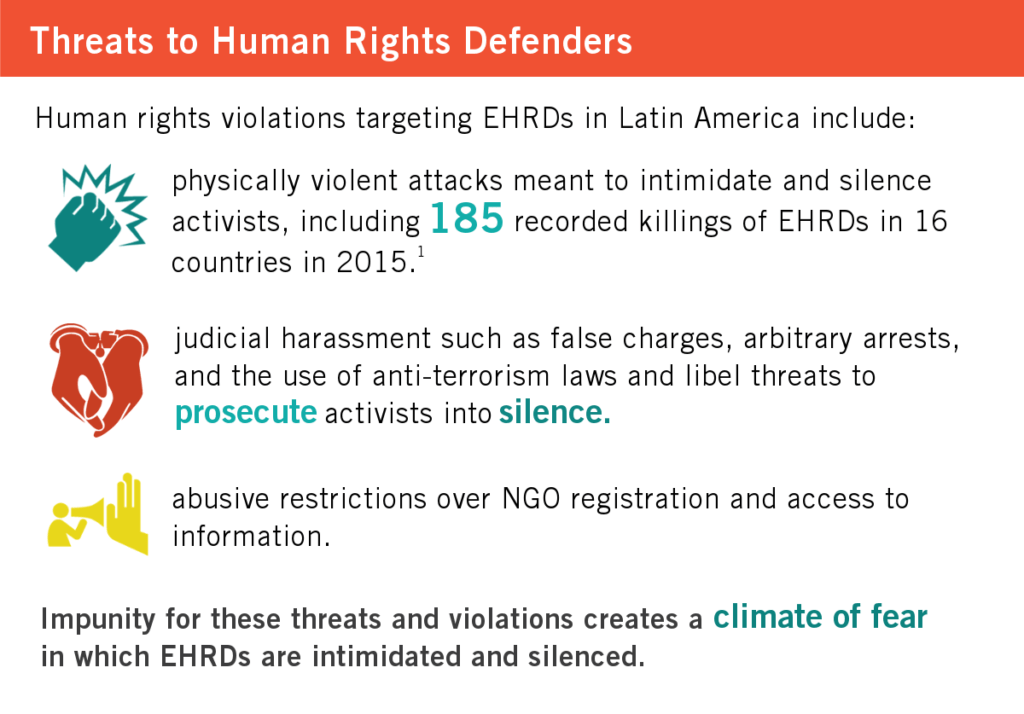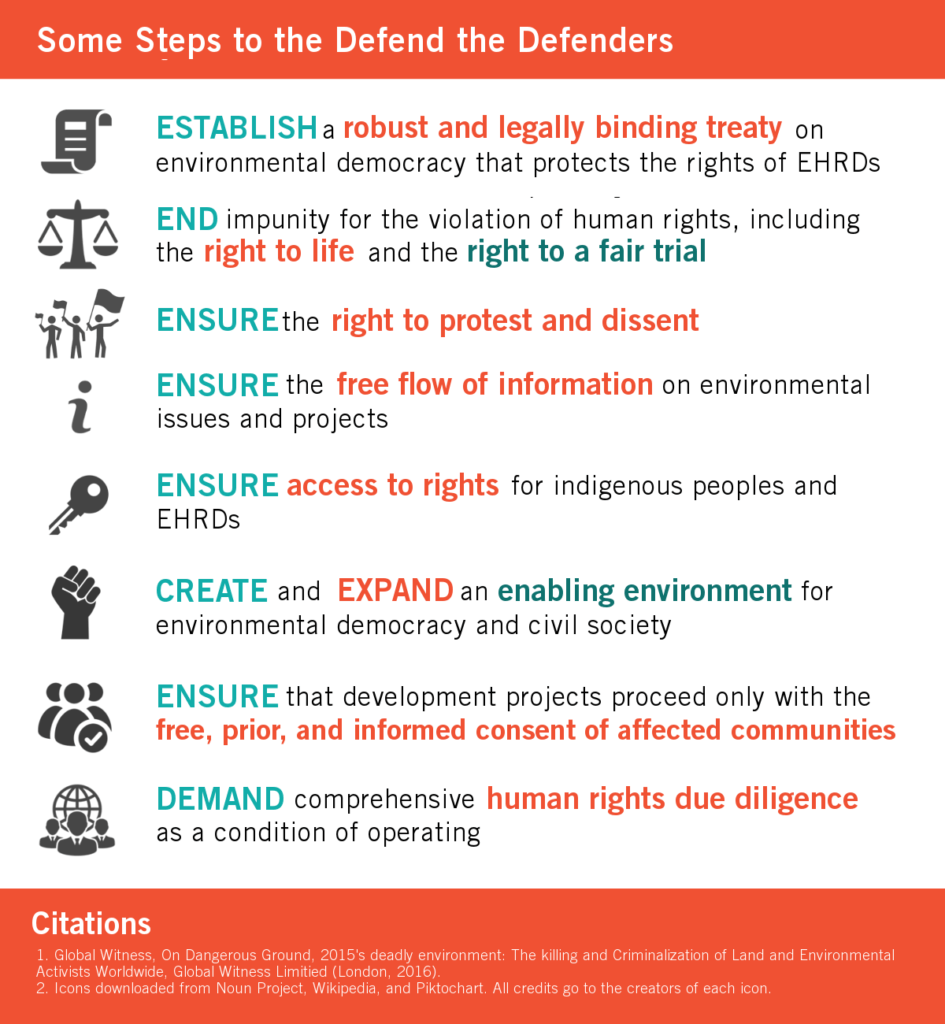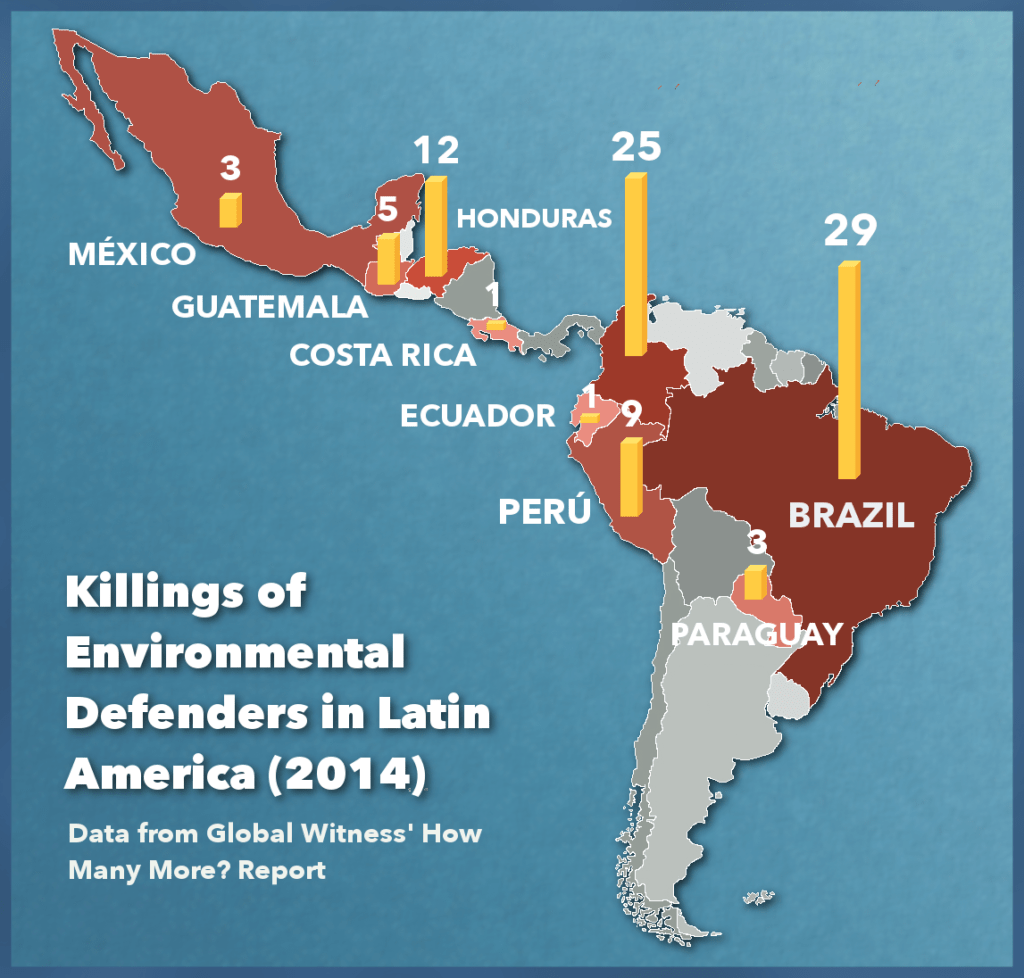In Latin America, environmental human rights defenders (EHRDs) are increasingly targeted for raising concerns about the potential impacts of development projects on local communities’ livelihoods and environments. To address the threats faced by EHRDs in Latin America as they defend the right to a healthy environment, CIEL and Article 19 have published a report called A Deadly Shade of Green – Threats to Environmental Human Rights Defenders in Latin America.

A Deadly Shade of Green reveals threats against EHRDs in Latin America are on the rise. The report details how local governments and corporations are the most common perpetrators of human rights violations committed against EHRDs and have utilized various tactics to restrict the activism of EHRDs. These tactics range from surveillance and defamation campaigns, judicial harassment including false charges and arbitrary arrests, and physical attacks such as acts of torture and assassinations.

The report also finds that EHRDs were often targeted because of their outspokenness about the negative environmental and social impacts of extractive industries and development projects, which local governments and corporations often support. Governments and corporations have a vested economic interest in these kinds of projects because of their potential for profit, while indigenous communities on whose lands the development projects are often located are especially at risk. This volatile combination of vulnerability and profit is a persistent cause of conflicts that lead to human rights violations.
There is very little accountability for human rights violations committed against EHRDs, and impunity further escalates the repression.

In A Deadly Shade of Green, CIEL and Article 19 argue that implementation of the rights of access to information, participation and justice enshrined in Principle 10 of the Rio Declaration will help diffuse the conflicts in the region that are resulting in attacks against EHRDs. These “access rights” ensure that EHRDs and the communities that they represent will be effectively engaged in the decision-making process for resource extraction and development projects that may harm the environment and human rights of local communities. Effective community engagement in environmental decisions can avoid conflicts with the State and/or corporate actors and helps channel them through institutional means.
To effectively protect environmental human rights defenders, Latin American and Caribbean countries are negotiating an agreement that would transform Principle 10 from an aspirational guide into a binding legal requirement for countries in Latin America and the Caribbean. Effective recognition and enforcement of these human rights will reduce the number of attacks against environmental defenders and provide remedies for them.
Today, CIEL is in Santo Domingo, Dominican Republic as negotiations resume for a regional agreement on Principle 10. We’ll keep you updated on this vital process, which should conclude in December.
To find out more about the situation of EHRDs in Latin America and the human rights abuses they currently face, you can read the report in English and Spanish.

All Graphics: Josephine Ong
Originally posted August 9, 2016
